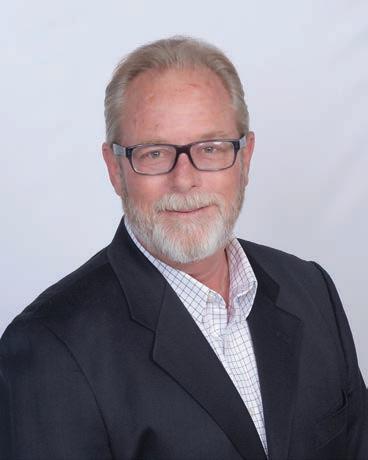Small Landlords: Looking to Cash Out Due to New Pro-Tenant Laws? Here’s One Option.
Under laws enacted by the 2024 General Assembly, Colorado tenants gained many protections, both from eviction and for “habitability,” but those protections for tenants have made being a landlord trickier, more expensive, and riskier, especially for the small landlord who manages his or her own rental units.
Last week, I helped one such small landlord dispose of his rental duplex and invest the proceeds in a way that deferred his capital gains but didn’t get him into yet a new investment that carried those problems and management.
you’re able to put the entire proceeds to work generating income. If you keep doing 1031 exchanges until you die, your heirs will inherit your final holding(s) with a stepped up value and no capital gains tax liability at all.
In his case, he had to deal with a squatter who knew his protections against eviction that already existed under Colorado law and refused to leave. That experience left such a bad taste in my client’s mouth that he chose to sell instead of finding a new tenant.
I was once a commercial landlord myself and earned some great passive income from it for several years, but I vowed never to be a residential landlord. Back then, the big concern was whether your tenant might be cooking meth — a nightmare situation requiring not only eviction but very expensive mitigation before the property could be put back on the rental market or sold. I preferred being a commercial landlord, because my tenants’ offices were always open and I knew they wouldn’t trash their office, because they had customers.
These new protections for residential tenants only add to the unattractiveness of being a small landlord of residential properties.
Other changes in landlord-tenant law include the banning of occupancy limits based on familial relationships by local governments and prohibiting rent increases in excess of 10% over the prior year’s rent (defined as “rent gouging”). Local governments may still implement residential occupancy limits based on demonstrated health and safety standards, such as international building codes, fire codes, Colorado Department of Public Health and Environment wastewater and water quality standards, or affordable housing program guidelines.
College towns, including Boulder and Golden, have in the past implemented occupancy limits to prevent the use of singlefamily homes by large numbers of unrelated college students. Those laws are now invalidated by state law.
In the posting of this article on my blog, http://RealEstateToday.substack.com, I’ve included a link to an article with a fuller description of those 2024 landlord-tenant laws.
Meanwhile, selling a long-held investment property can subject the seller to capital gains tax and depreciation recapture that can wipe out much of the profit from selling. A common tax strategy for deferring those taxes is to do a “like kind” exchange under Section 1031 of the Internal Revenue Code.
By purchasing a replacement investment property (not a primary residence) with the proceeds from your relinquished property,
You may be saying, “I don’t want to own any new investment property, especially a residential rental property,” given these new laws, but I have good news for you.
“Like kind” properties are broadly interpreted by the IRS to include any real estate (except a Real Estate Investment Trust or REIT). This allows you to reinvest your funds as a passive investor in what’s known as a Delaware Statutory Trust (DST). However, a DST investment is only for accredited investors. Individual accredited investors come under two categories:
They have an individual net worth, or joint net worth with their spouse, excluding primary residence, but including home furnishings and personal automobiles, of more than $1,000,000, or
They have an individual income in excess of $200,000 or joint income with their spouse in excess of $300,000, in each of the two most recent years and have a reasonable expectation of reaching the same income level in the current year.
DSTs are exploding in popularity, and with good reason. A Delaware Statutory Trust (DST) is an ownership structure that allows an investor to purchase a fractional interest in a large property or portfolio of properties. The DST is a legal entity (formed as a trust under the laws of Delaware) which holds legal title to property(ies) held in the trust.
For Federal income tax purposes, each DST investor owns a “beneficial interest” in the trust and is treated as owning an undivided fractional interest in the real estate being held by the trust. A real estate company, known as the sponsor, purchases the real estate for the DST and sells “beneficial interests” to 1031 exchange investors through broker/dealers.
The investors, as beneficiaries of the trust, receive their prorated share of the income, tax benefits, and any capital appreciation produced by the real estate. The real estate company, the sponsor of the DST, serves as the trust manager and is responsible for making the major management decisions of the trust. Some examples of the type of real estate that a DST may invest in are: Industrial, MultiFamily, Medical Office, Student Housing, Senior Housing, Retail, Storage, etc. The sponsor purchases the real estate for the DST and sells "beneficial interests" to 1031 exchange investors through broker/dealers. If you list your investment property for sale and your listing agent doesn’t tell you about DSTs, it could be because it’s an investment of your proceeds that doesn’t allow your agent to earn a commission. It could also, however, be because he or she is not familiar with DSTs. Show him or her this article!

We learned more about DSTs when Wayne Bernardo of Bernardo Asset Management, a boutique real estate securities firm in Evergreen, spoke to our broker associates and me at a recent office meeting.
One problem with doing a traditional 1031 exchange is that you must identify your replacement property within 45 days of closing on the relinquished property, and close on the replacement property within 180 days. It’s not uncommon for a 1031 exchange to fail due to missing these deadlines, leaving the seller of the relinquished property to owe the capital gains tax which he or she was intending to defer. The good news in that situation is that it takes almost no time to switch to a DST. If it’s day 45 and you know you’ll miss the deadline, there’s still time to invest in a DST. But you must identify the DST by day 45 with your Qualified Intermediary (QI).
That’s because there are always some DSTs being offered, and Wayne Bernardo can assist you in finding a DST option to complete your 1031 exchange. He proved that last week when he spoke to us on Monday, and I told him I had a closing that Friday in which the seller was facing over $500,000 in taxable capital gains which he was willing to pay to get out of his rental investment. “Can you help him,” I asked.
The answer was clearly “yes,” because at the closing on Friday, the settlement statement showed $500,000 of the sellers’ proceeds going to my client's Qualified Intermediary for a DST purchase. Wayne was able to find a few DST options for my client and my client decided to purchase one of Wayne's DST recommendations.
Instead of paying capital gains tax (and depreciation recapture) on his sale and wondering how to invest what was left, my client is investing $500,000 in a DST that will earn him an expected monthly income stream over the life of the DST. (Note: Distributions are not guaranteed.)
One of the “negatives” about DSTs is that it is not a liquid investment. You can’t pull your money out of the DST for at least 5 to 10 years, but if that is not problematic, it’s a great solution for the seller who wants to get out of an investment property without paying capital gains tax but having no further management concerns or liabilities. Wayne refers to it as “mailbox money,” because you get a
check in the mail without the headaches of being a landlord.
Note: You don’t have to invest your entire proceeds in a 1031 exchange. My client who invested $500,000 in the DST also received $153,000 in proceeds on which he will pay capital gains tax but still providing him over $100,000 in net proceeds for other purposes, such as travel. I did the same thing when I sold an office building in 2004 and didn’t reinvest the entire amount using a 1031 exchange.
For more information about DSTs, check out Wayne's website BernardoAsset.com, or call Wayne at 303-981-1387, or email him at Wayne@BernardoAsset.com Let Wayne know you saw this article, which he factchecked for accuracy prior to publication.
Of course, my broker associates and I are ready and able to help you sell your investment property. Our contact info is below.
As with any real estate investment, there are risks with investing in DSTs. Here’s how they are spelled out on Wayne’s website: Investors Do Not Hold Title: 1031 Exchange DST investors do not hold title of the property but rather own beneficial interests in the trust and the sponsor controls the management and selling of the property.
Illiquidity: A Delaware Statutory Trust interest is an illiquid alternative investment and there is no current active secondary market for selling your interest, which creates the inability to access immediate liquidity.
Potential for Property Value Loss: All real estate investments have the potential to lose value during the life of the investment.
Reduction or Elimination of Monthly Cas Flow Distributions: Like any investment in real estate, if a property unexpectedly loses tenants or sustains substantial damage, there is a potential for suspension of cash flow distributions.
No Performance Guarantee: General real estate market risks also apply to DSTs. There can be no assurance that a property will perform as projected. DSTs are subject to economic volatility, tenants not paying their rent on time, and other traditional risks of owning, operating and selling real estate.
Potential Change in Tax Law: Tax laws are subject to change, which may have a negative impact on a DST investment.
Why Are HOA Dues Being Raised So Much?
This is a question which I have been asked by readers, so I reached out to Stan Hrincevich, president of Colorado HOA Forum, who suggested some possible causes.
Many HOAs are discovering that their reserve accounts are underfunded and are increasing monthly dues in lieu of a one-time special assessment.
Insurance costs have skyrocketed, and if the HOA is responsible for more than just common elements, this could be a reason for increased dues. If the dues weren’t raised in a timely manner, the eventual increase could be even bigger.
Insurance deductibles have increased significantly, too, and if, for example, the HOA insures the community’s roofs and there’s a hail storm, your individual share of the deductible for replacing the roofs could result in
a special assessment in the tens of thousands of dollars. Ask the provider of your individual insurance policy about a rider to cover such an assessment.
Fees charged by HOA management companies and the contractors hired by them, such as for grounds maintenance and snow removal, have increased substantially.
Water charges have skyrocketed, and if the HOA provides irrigation, that could cause dues to increase.
If the HOA embarks on lawsuits and loses, this can result in a financial impact that could raise monthly dues or result in a special assessment.
If you are worried about misappropriation, ask to see the check register and bank statements of your HOA and see where the money is going.
MEES
Willard Kenneth Mees
June 23, 1928- December 16, 2024
Willard was born to Helen (Bitzer) and Otto John Mees in Tolstoy, SD on June 23, 1928. Will graduated from Wilmont High School in 1946. After graduating high school, Will enlisted in the Navy in July 1946. He served two years as a Hospital Corpsman. After the Navy, he received his Bachelor of Science and Doctor of Optometry from Illinois College of Optometry. Will received several post graduate certi cations throughout his professional career. Will met his wife Mary Ann Pongratz when he was in the nal stages of his optometric education. Willard and Mary Ann married on November 26, 1955. ey moved to Brush, CO where Will began his practice of Optometry in 1956 and raised their three sons Je ery, Craig, and Brad. Along with his practice, Will was elected to the Morgan Community College board









as Treasurer. On the board he assisted in opening the rst community college in Morgan County. In 1977, Will and Mary Ann moved to Denver where Will continued to practice Optometry until December 1999. Willard holds a Life Membership in both the Colorado Optometric Association and American Optometric Association. In retirement, Will enjoyed his time at the golf course and gol ng in the senior men’s league.
Willard is survived by his two sons Craig Steven Mees (Yolanda) and Brad Charles Mees (Sheila), two siblings Grace (Mees) Knight and Clayton Mees, eight grandchildren, and 13 great grandchildren. Willard is preceded in death by his wife Mary Ann Mees, son Je ery Alan Mees, both parents, and sister Joy (Mees) Olson.
























































































































